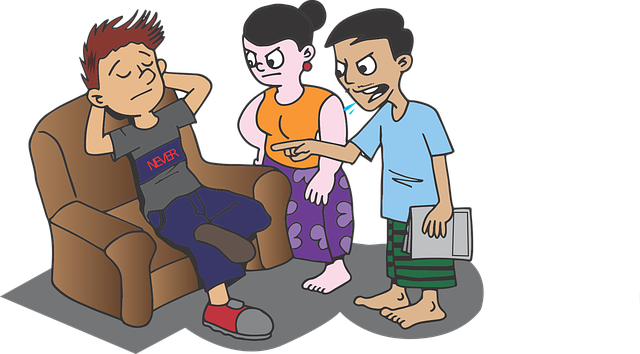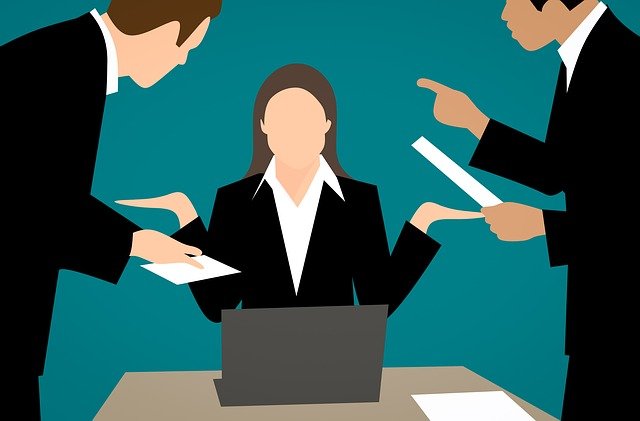
We all love to take things personally. The art lies in understanding the pattern and learning how to stop taking things personally.
Have you ever felt angry when driving and someone takes a sharp cut without giving any indicator? Do you often feel hypersensitive during a discussion or argument? We all do, and it’s normal to feel this way. But, when you start bothering about everything that happens around you. It’s a red flag. You take things personally way too often and need to learn to let go.
Everything Is Not About You
Have you noticed how older people, who have seen life up close and personal much more than the younger ones, are calm and don’t react much? It’s because they have learned an important life lesson. Everything is not about them, and there is no need to get all worked up at anything and everything we hear or see. They have identified their biases with trials and errors and have improved or made peace with them. They know how and when to stop taking things personally.
In a world full of trolls, ignorance is bliss

We all use social media. How do you feel when someone comments something negative or idiotic that doesn’t make sense under your post? Depending on the type of comment, the emotion may range from feeling annoyed, angry or extremely furious. Why? Because you took that comment personally. It may be just an opinion that may or may not be valid. If it is not true, then there is no need to be angry; if you know that it has some truth, you should thank that person for honest feedback and work on it.
It could have been a troll seeking attention by calling you names or showing off his trolling skills. In this case – You read it, laugh it off, delete and block the genius. Simple enough. Most likely, it is just the other person’s opinion, that’s all.
No one has access to your mind
Let’s take another example. How do you feel when you enter an elevator when it’s almost full, and you can barely manage to stand? Awkward right? We all do. Our minds start throwing different thoughts. What are others thinking about me? Couldn’t you wait for the next lift? How uncivilized are you? You have no manners and so on. You start regretting your decision and think you could have waited a bit more.
Hang on, most people would have done the same if they were in a hurry. Nobody really knows your story and is entitled to think what they want to. And you would be surprised that most human beings think similarly. They worry about what others think about them. When in reality, everyone is busy talking to themselves in their head. Whoa! We humans have so many superpowers. Overthinking is undoubtedly one of them.
Why Do We Take Things Personally?
We take things personally and attach unnecessary value to what others think or say because of our self-doubt. If we are insecure about something, we tend to take things personally since we believe there is some truth to what others are saying.
When was the last time you faced criticism? How did you feel and react? We all take criticism personally. Even if we know we are at fault, we keep defending instead of reflecting on criticism and reasoning its genuineness. It’s a kind of self-defense technique.
Here’s an interesting Ted Talk by Frederick Imbo. He talks about why we should stop taking things personally. Different ways to learn to deal with criticism and how not to take things personally.
How Can We Stop Taking Things Personally?
If you regularly read my blog posts, you must know that I have a pug called Toto. He turns one this April. One thing I’ve learned from him is to not take things personally. I may scold him, and he gets scared, and in no time, he is back, jumping around me, as if nothing happened. Because me getting angry with him is not his fault. It is me who is not in a good mood.
Imagine the same situation among humans, if our friend, spouse, parents, siblings, or even our boss says anything we don’t want to hear. We go crazy instead of thinking, hey, it is just what they think. It is up to me to react when we take things personally and keep hurting our so-called ego more than often. We limit our true freedom. Unless we learn how not to let others control our emotions, we aren’t free. Even worse, shrewd people will quickly notice and use your behavior against you.

We know the problem; what is the way out? The solution lies in observing our actions, behavior and thoughts. The reason for such behavior could be genetics. Maybe someone in our family tree passed on this to us. We could be going through a rough phase in life or have low self-esteem. Once we know what’s wrong, we can work on developing a truly free mindset, where we stop taking things personally and lead a better life.
Seek Clarification
We all want to validate our own beliefs in different ways; hence it becomes natural to take things personally. We need to build a habit of not jumping to conclusions about every trigger we face. If there is any doubt, ask questions. We all have a different way of speaking, vocabulary, upbringing, and level of EQ (emotional quotient). So much so that we don’t laugh at the same jokes.
If we ask questions, it has two benefits. You may get to know that your understanding was at fault; the other person was not as nasty as you felt. Secondly, you get a breather and time to think clearly.
Try to think of an alternate “WHY”
Our mind wants to feed our preconceived notions and biases. The best way to tame it is to contradict it by thinking of a different reason. Stop listening to the “WHY” your mind gives you. If there is an argument. Think from the other person’s point of view, why are they saying or doing this? Most likely, you will find genuine reasons instead of thinking they are attacking you. A good example could be those never-ending political debates we have with each other. They are never personal, but we all go all out and literally kill each other with words (unless there is a sword in sight)
Every criticism is not wrong

If we learn to keep our minds open, we find opportunities in criticism. Remember those challenging office performance discussions? Or the scolding you got when you didn’t get good marks in the exam. We need to be honest with ourselves and develop self-worth. Remember to treat feedback as feedback, not treat them as criticism. Even better, learn to think of criticism as feedback that helps you grow.
Fight with your fears and grow
The best way to grow as an individual is to face your fears instead of hiding from them. This is the only way to improve things and habits you don’t like about yourself. Once you do that, there will be lesser things on your mind that will hurt your ego or make you think that the world is conspiring against you. Unlearn your self-limiting habits and thoughts to become an improved version of yourself.
Get busy and stop overthinking
An excellent way to not take things personally is by keeping yourself active. When your mind is occupied and doing productive things, it has no time to overthink and pump up your false ego or entitlement.
Conclusion
Everything is not about you. Yet, there may be times when you need to take a stand. What if you are not at fault and still get the intentional bashing? It is still not about you. It is another person’s problem. You know your truth, so there is no need to worry. Say what you need to say without getting personal or dropping to the level of others. When you stop taking things personally, you have more control. And respond better without needlessly hurting your peace of mind.
Please go ahead and leave feedback or criticism, whatever you prefer. I would love to hear some nasty but honest comments.

Feedbacks – Reader’s POV